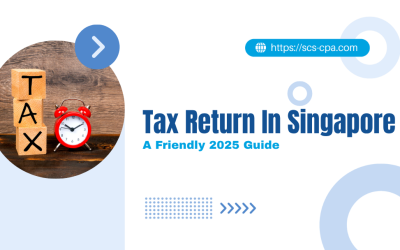Is Singapore really a tax haven, or is it simply capitalising on tax policies that spur economic development? This topic frequently arises among investors and entrepreneurs considering business ventures in the region.
So, what’s the truth behind Singapore’s tax haven status?
What is a Tax Haven?
A tax haven typically offers minimal or even zero taxation on financial gains and corporate profits, drawing individuals and foreign companies who aim to lower their tax expenditures. These jurisdictions often do not necessitate substantial operational presence locally, allowing individuals and corporations to minimise their tax liabilities legally.
Evaluating Singapore’s Tax Haven Status
While Singapore offers appealing tax rates, it diverges from the typical tax haven by requiring businesses to have substantial local operations to benefit from these advantages.
Therefore, Singapore’s tax haven status is more nuanced than that of typical tax havens, emphasising genuine economic contribution and adherence to international tax norms rather than just offering tax relief.
Tax advantages in Singapore
Taxes in Singapore come with significant benefits, which is a key factor why many businesses and professionals choose to establish themselves in the country. It offers a corporate income tax at a flat rate of 17%, the lowest among ASEAN nations.
Meanwhile, personal tax rates in Singapore are progressive for citizens and residents, ranging from 0% to 24% based on individual earnings. This structure ensures fairness across income levels while supporting economic growth.
What are the tax incentives for businesses in Singapore?
Singapore’s reputation as a tax haven is backed by its attractive tax reliefs and incentives, which are offered to encourage business growth and innovation. Some Singapore tax relief and incentives include:
Startup tax exemption
Supports new businesses by offering tax relief during their early years. Starting from YA 2020, qualifying companies receive a 75% exemption on the first S$100,000 of chargeable income and a further 50% exemption on the next S$100,000.
Pioneer incentive
Pioneer incentives offer tax exemptions on income from activities such as manufacturing high-value-added products, research and development (R&D), and other innovative services. Companies in Singapore engaged in these areas can qualify for tax relief for up to five years, with the potential for extension if the business demonstrates commitment to expansion and further investment.
Double taxation avoidance agreements
Singapore has established one of the largest networks of Double Taxation Avoidance Agreements (DTAs), with approximately 100 treaties, including those with all 10 ASEAN countries. These agreements help businesses avoid being taxed twice on cross-border transactions, such as trade, investments, and knowledge exchange.
The Truth About Offshore Tax Planning in Singapore
Singapore is often seen as a tax-friendly jurisdiction, but it is not a place for illegal tax evasion. While it offers tax efficiency, the country enforces strict compliance with global standards like the OECD’s Exchange of Information (EOI) and the Foreign Account Tax Compliance Act (FATCA).
Thus, businesses must navigate these regulations to legally benefit from Singapore’s favourable tax environment while ensuring full transparency.
What it Means to Have Tax Residency Status in Singapore
Tax residency in Singapore is determined by how long an individual or company operates in the country. For foreign companies, tax residency is granted if the management and control of the business are based in Singapore.
On the other hand, tax rates for foreigners in Singapore apply under specific conditions:
- If they have stayed or worked in Singapore for over 183 days in a single calendar year or for three consecutive years.
- Have worked in Singapore continuously for two consecutive calendar years, with a total stay of more than 183 days, including the time spent in Singapore before and after the employment period.
The Singapore tax system is structured to encourage economic activity, unlike traditional tax havens, where requirements are typically very lax or not enforced.
Comparing Singapore to Other Tax Havens
While other jurisdictions considered tax havens, like the Cayman Islands and Bermuda, are known for offering zero taxes on profits, incomes, and capital gains, Singapore operates on a different model. Singapore requires companies to engage in actual economic activities to qualify for tax incentives. This ensures businesses contribute to the local economy, fostering long-term, sustainable growth.
Why Foreign Business Owners and Investors Choose Singapore
Foreign business owners and investors are drawn to Singapore not only for its attractive tax advantages but also for a range of compelling non-tax benefits.
The country offers political stability, providing a secure environment for long-term investments. Moreover, Singapore’s strong economy and pro-business policies foster a climate that supports growth and innovation.
Furthermore, as one of the world’s leading financial hubs, Singapore offers access to a well-developed financial infrastructure and a global network of businesses. Its strategic location in Asia also makes it a gateway to rapidly growing regional markets.
Together, these factors make Singapore an attractive and sustainable choice for businesses seeking stability, growth, and access to key global markets.
Take Advantage of Singapore’s Competitive Tax System Today
While Singapore is often referred to as a tax haven due to its attractive tax incentives, it balances these advantages with strict regulations to ensure transparency and responsible economic participation.
If you’re looking to incorporate a company or expand your business in Singapore, corporate service providers like Singapore Corporate Services (SCS) can help you navigate the local tax landscape. We offer comprehensive income and corporate tax services, helping your business comply with regulations and fully maximise the significant tax benefits available.
Get in touch today and ensure your business thrives under Singapore’s advantageous tax system.
Corporate Income Tax Malaysia: Rates, Filing, and Strategic Compliance
Understand Malaysia’s corporate income tax system. Learn current tax rates, SME tiers, filing deadlines, LHDN requirements, penalties, and more.
Understanding the Core Types of Audits and Their Roles in Accounting in Singapore
Learn the key types of audits in Singapore to build trust and stay compliant. Examples are statutory, internal, GST, and forensic.
Tax Return In Singapore: A Friendly 2025 Guide
Want to be a responsible business owner? Read this guide to tax return in Singapore to help understand tax filing and play your part.





